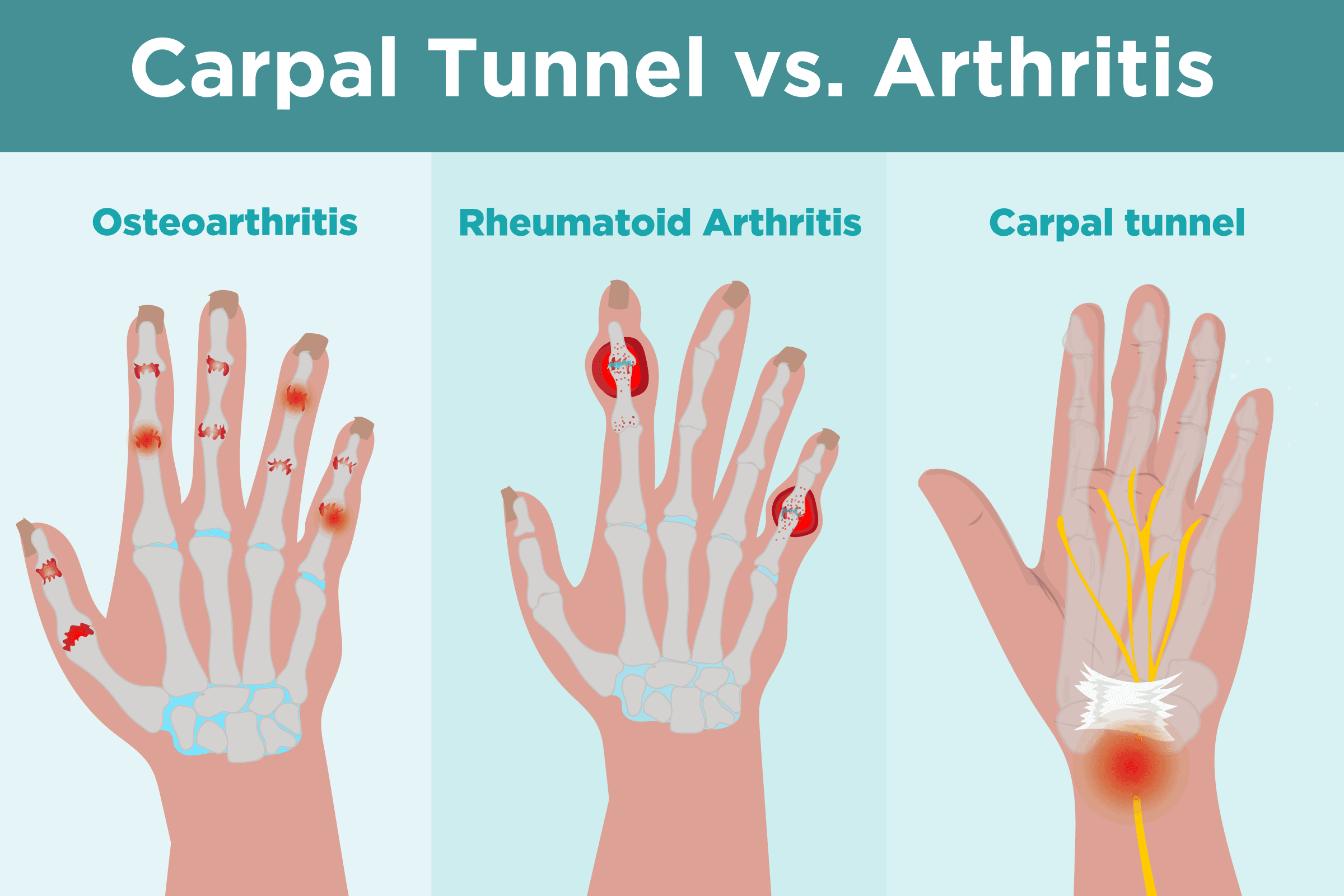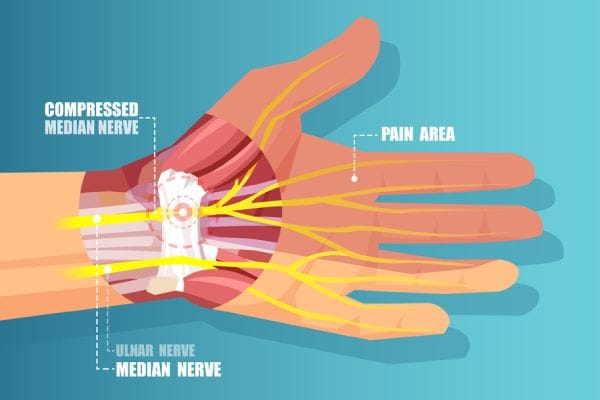Carpal Tunnel Syndrome: How Physiotherapy Can Help
Carpal Tunnel Syndrome (CTS) is a common condition caused by pressure on the median nerve as it passes through the carpal tunnel in the wrist. This condition can lead to pain, tingling, numbness, and weakness in the hand and fingers. If left untreated, it can significantly impact daily activities and quality of life.
Fortunately, physiotherapy offers effective, non-invasive solutions to manage and improve symptoms. Here’s what you need to know about CTS and how physiotherapy can help.
What Causes Carpal Tunnel Syndrome?
CTS can result from repetitive wrist movements, prolonged computer use, wrist injuries, or conditions like arthritis and diabetes. Pregnancy and hormonal changes may also increase the risk.
Common Symptoms
- Numbness or tingling in the thumb, index, middle, or ring fingers
- Pain in the wrist, palm, or forearm
- Weakness in the hand, making it hard to grip objects
- Symptoms often worsen at night

How Can Physiotherapy Help?
Physiotherapy aims to reduce pain, improve mobility, and strengthen the wrist and hand. Treatment may include:
1. Manual Therapy
A physiotherapist may use hands-on techniques to mobilize the wrist joint and surrounding tissues, reducing stiffness and promoting healing.
2. Stretching and Strengthening Exercises
Customized exercises target the wrist and forearm to alleviate pressure on the median nerve. Strengthening muscles in the hand and forearm can improve grip and function.
3. Posture and Ergonomic Training
Poor posture and workstation setup can exacerbate symptoms. A physiotherapist can provide ergonomic advice to reduce strain on your wrists during daily activities.
4. Nerve Gliding Exercises
These exercises encourage the median nerve to move smoothly through the carpal tunnel, reducing nerve compression and improving mobility.
5.Modalities for Pain Relief
Physiotherapy treatments may include ultrasound, heat, ice, or electrical stimulation to reduce inflammation and manage pain.
6.Benefits of Bracing
Braces can be highly effective as they immobilize the wrist, preventing excessive movements that may worsen symptoms. They also help reduce pressure on the median nerve. Additionally, wearing a brace can support recovery by enhancing the effectiveness of physiotherapy techniques.
When to Seek Help
If you’re experiencing persistent symptoms of CTS, early intervention is key. Physiotherapy can prevent the condition from worsening and may reduce the need for surgical intervention.
At Altea Physiotherapy, We’re Here to Help
Our experienced physiotherapists in Prince George can develop a personalized treatment plan to address your unique needs. Whether you’re dealing with CTS due to work, hobbies, or underlying health conditions, we’ll guide you toward recovery.
Don’t let carpal tunnel syndrome hold you back. Contact us today to schedule an appointment and start your journey to better hand and wrist health!

